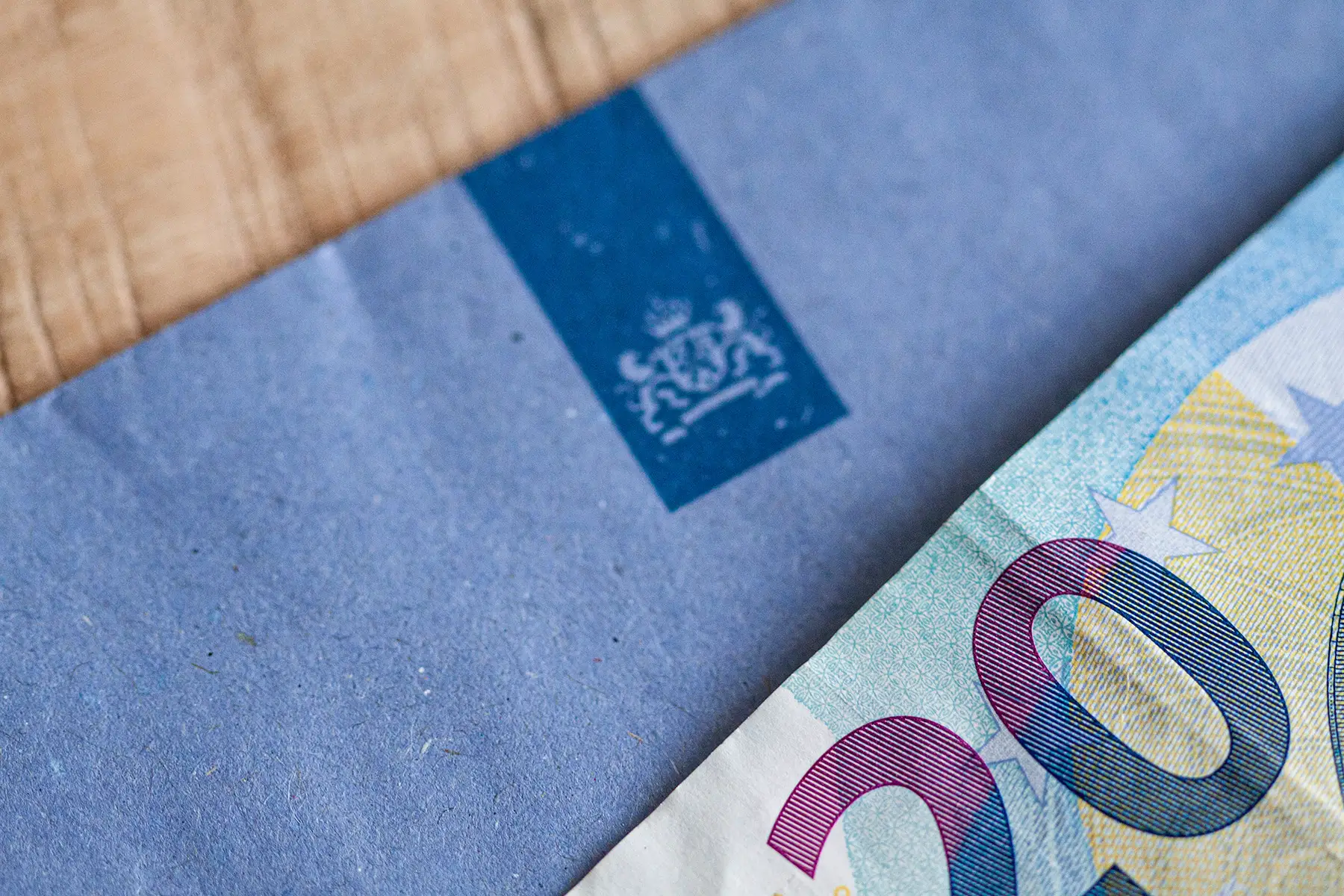For expats who have relocated to the Netherlands, it is important to be aware of any Dutch inheritance tax implications on your assets, inheritance, or estate planning. Foreign residents can be subject to Dutch inheritance law and inheritance taxes on worldwide assets; although recent reforms and bilateral agreements allow certain foreigners to avoid this by revising their will.
Below, we explain the essentials of inheritance law in the Netherlands, including the following topics:
SCG Advocaten
SCG Advocaten have a team of specialists who will advise and guide you in all matters relating to inheritance law. They are one of the largest family law firms in the Netherlands and work with clients in the Netherlands and abroad in all possible family and inheritance disputes with a personal approach.
Dutch inheritance law and succession rules
In the Netherlands, you pay inheritance tax on any inheritance you receive. Inheritance consists of the estate (assets and liabilities) left by a deceased person, but there are some exceptions. Therefore, it is good to know the basics of Dutch inheritance law and respective taxes to avoid any surprises.

The first step is to determine which country’s law applies to an inheritance; this affects the division of the estate as well as the rights and duties of the heirs. Basically, the Dutch inheritance law applies to Dutch nationals currently living in the Netherlands. It also applies to foreign residents who lived there for five years before their death.
However, there have been recent changes to European Union rules. This means that EU citizens living abroad (in most countries) can now choose whether the law of their home country or their country of residence applies. If a foreign resident dies without leaving a will or making an official declaration on which law they wish to apply, the law of the country in which they lived for the last five years applies.
The rules don’t apply in Denmark and Ireland, however, as these two countries opted out. It will, however, apply to nationals of these countries if they live elsewhere in the EU. The EU provides details on country agreements for cross-border succession.
Inheritance without a will
If a person dies in the Netherlands without leaving a will, Dutch intestacy rules in Dutch inheritance law states that the estate distributes equally between the spouse/partner and children. However, if there is no partner or child, parents and siblings share the estate. Grandparents and great-grandparents are next, and the last, in the succession line. Note that a partner who is not married to the deceased or has no registered partnership with them is not considered an heir and is barely protected by law.
In cases where an heir passed away or rejects an inheritance, their share distributes equally between any children they have. If there are a surviving partner and children, Dutch inheritance law under statutory provision states that the estate passes to the partner.

However, the children retain a monetary claim on the estate equivalent to their share; they can cash this in in the event of the death, remarriage, or bankruptcy of the partner. Rules of the community of property apply in the Netherlands. This means that, unless the married couple made a matrimonial agreement to the contrary, they jointly own all assets. In the event of death, the surviving partner automatically retains their half, and the other half becomes the deceased’s estate.
Dutch inheritance law includes provisions for forced heirship, which places some restrictions on how an estate is distributed. Under forced heirship, the children of the deceased are entitled to claim 50% of what they would have received under intestacy rules if they are disinherited. Spouses and registered partners who are disinherited can also claim lifetime use (usufruct) of the family home or other estate assets.
Inheritance law and pensions in the Netherlands
If your partner (or ex-partner) died and you were financially dependent on them, you may be entitled to the survivor’s benefit (Algemene Nabestaandenwet or Anw benefit). However, if you are the surviving partner and you have not yet reached the AOW pension age, look after a child under 18, or you are more than 45% incapacitated for work, you can qualify for an Anw survivor’s benefit.
In the case that you are the surviving partner and you also get an AOW pension, you will now get an AOW pension for a person living alone; this pays at a higher rate than for a person living with another adult. The higher pension starts in the month your partner died. Furthermore, if both parents pass away, minor children (both biological and adopted) may receive a benefit.
To be eligible for the pensions above, the partner (or ex-partner) must have lived in the Netherlands or have worked and paid tax in the Netherlands.
In addition, a death grant pays immediately to the deceased’s partner, or (if there is no surviving partner) to the children (under 18). The amount of the death grant is equal to one month’s AOW pension and only pays once.
Inheritance tax is not due on the survivor’s pension. However, the value of this pension is deducted from any exemption the partner may receive. Half of the cash value of any pension right received by the surviving partner from the deceased is deducted from this amount with the condition that a minimum allowance of €162,071 always remains.
Read more about the Dutch pension system.
Dutch inheritance tax
Inheritance tax in the Netherlands is levied on the estate of the deceased. It is payable on all worldwide assets belonging to anyone who is classified as a Dutch resident, for tax purposes, at the time of their death. However, Dutch law considers émigrés as residents for inheritance and gift tax purposes for 10 years after emigration.

Inheritance tax in the Netherlands is payable on the net value of the estate. This is the value of all moveable and fixed assets minus outstanding debts and funeral costs. The assets include all gifts donated within 180 days before death, and proceeds of life insurance (if the law obliges the deceased to contribute to such insurance).
Dutch inheritance tax rates and gift tax rates are the same. However, some members of the family are eligible for a tax-free allowance. In 2023, the amounts are:
- Spouse/partner: up to €723,526 (depending on pension values)
- Children and grandchildren: €22,918
- Children who are sick or live with a disability: €68,740
- Parents: €54,270
- All others: €2,418
Meanwhile, inheritance tax rates are as follows:
- Foster or step-child living with a disability: 10% on inheritance below €138,641, and 20% on any inheritance above the threshold.
- Grandchildren: 18% below €138,641 and 36% above.
- All others: 30% below €138,641 and 40% above.
Part of your inheritance can be eligible for an exemption from the Dutch inheritance tax. You will, however, still be taxed on the remaining amount of the inheritance that exceeds the exemption. The current rates of tax-free allowance are the following:
Remember that these exemptions are subject to deductions, such as pensions. Charities and social welfare community organizations are exempt from inheritance tax in the Netherlands.
The estate tax in the Netherlands
The inheritance tax on real estate is equal to the WOZ value (real estate law valuation) minus the mortgage debt. In the tax return, you can choose which WOZ value you state: the WOZ value in the year of death, or the WOZ value in the year after death.
An inherited Dutch real estate is not taxable for the purposes of Dutch real estate transfer tax. If real estate located in the Netherlands is gifted, however, transfer tax applies.
No inheritance tax applies to a non-resident’s real estate in the Netherlands. However, a resident’s worldwide property is subject to inheritance tax. Note that for the Dutch authorities, the residence of the donor or deceased is more relevant than the places where the assets are located. Hence, no gift or inheritance tax is levied on Dutch real estate or assets received from non-residents of the Netherlands.
All the possibilities above must be considered when you are preparing a will. Estate planning, for example, is a good way to make the taxes work for you and your family. A simple step like considering in advance if it is better to transfer the assets of a relative before or after their death can bring consequences on the type and the amount of taxes you pay (inherited and/or gift tax).
Paying inheritance tax in the Netherlands
Dutch taxation law requires that the inheritance tax is paid within eight months of the date of death. An executor of the will may be appointed to conduct the inheritance tax return. The tax authorities send the assessment to the executor after three months of receiving the tax return.

As an expat, you may be subject to double taxation. In the Netherlands, inheritance taxes are levied if the deceased’s domicile was in the country. Dutch authorities consider the residence of the deceased more relevant than the places where their assets are. However, in other countries, the law may be different; as a result, you may have to pay two sets of inheritance taxes.
The Netherlands has been signing double-tax treaties with several nations to allow foreign residents to avoid double taxation. Not all countries have a double-tax treaty with the Netherlands, however.
Reducing your inheritance tax in the Netherlands
Inheritance tax in the Netherlands is payable on the net value of the estate. This is the value of all moveable and fixed assets minus outstanding debts and funeral costs. The assets include:
- all gifts donated within 180 days before death
- proceeds of life insurance if the law obliges the deceased to contribute to such insurance
Dutch inheritance tax rates and gift tax rates are the same, but the exemptions allowed in case of gifts and inheritance differ from each other. One fact is for sure: you and/or your heirs must pay taxes on them anyway. However, you can reduce the amount owed.

The first step may be to consult a civil law notary who can offer you personal advice, considering your personal circumstances. The notary can also help you with your will, which ensures you have total control of who inherits your estate and eases the burden on your heirs. In your will, you can state, for example, that the law of your country of nationality should apply to your estate.
Gifting to your heirs
There are other ways to reduce the amount of tax due, such as gifting to your heirs or using the matrimonial property law. However, before implementing the steps below, you should consult a civil law notary.
Gifting can be a good tax planning strategy, as some exemptions apply. However, these depend on the relationship between the gift-giver and receiver, as well as the purposes for giving that gift. For example:
- Children of all ages can receive €5,515 tax-free for any purpose.
- Children between 18 and 40 years of age can receive:
- €26,457 tax-free for any purpose
- €55,114 tax-free for an expensive education
- €103,643 tax-free to purchase a house. However, this exemption is only available once in your lifetime.
For gifts received from somebody other than their parents (e.g., grandparents, uncles, aunts), the exemption is €2,208 tax-free for any purpose.
Inheritance tax advice in the Netherlands
Whether you’re a new arrival or you’ve called the Netherlands home for a few years, getting to grips with the Dutch inheritance tax system can be fairly complicated.
However, thankfully there are a number of expat-friendly tax advisors in the Netherlands. These can help with a number of issues related to inheritance tax, offering advice and information in English or other languages. Expat-friendly tax advisors in the Netherlands include:
The website Business.gov.nl provides a list of several Dutch organizations that can provide information for freelancers and self-employed professionals. You can find a list of tax advisors in Amsterdam in our directory.
Useful resources
- Belastingdienst – the Dutch tax authority
- Your Europe – European Union website for planning cross-border succession
- Dutch Civil Code – the law of succession
- Social Verzekeringsbank (SVB) – organization responsible for implementing Dutch national insurance schemes
- European Commission – about the survivor’s benefit
- ABN AMRO Bank – brochure about giving
- Koppel Services







